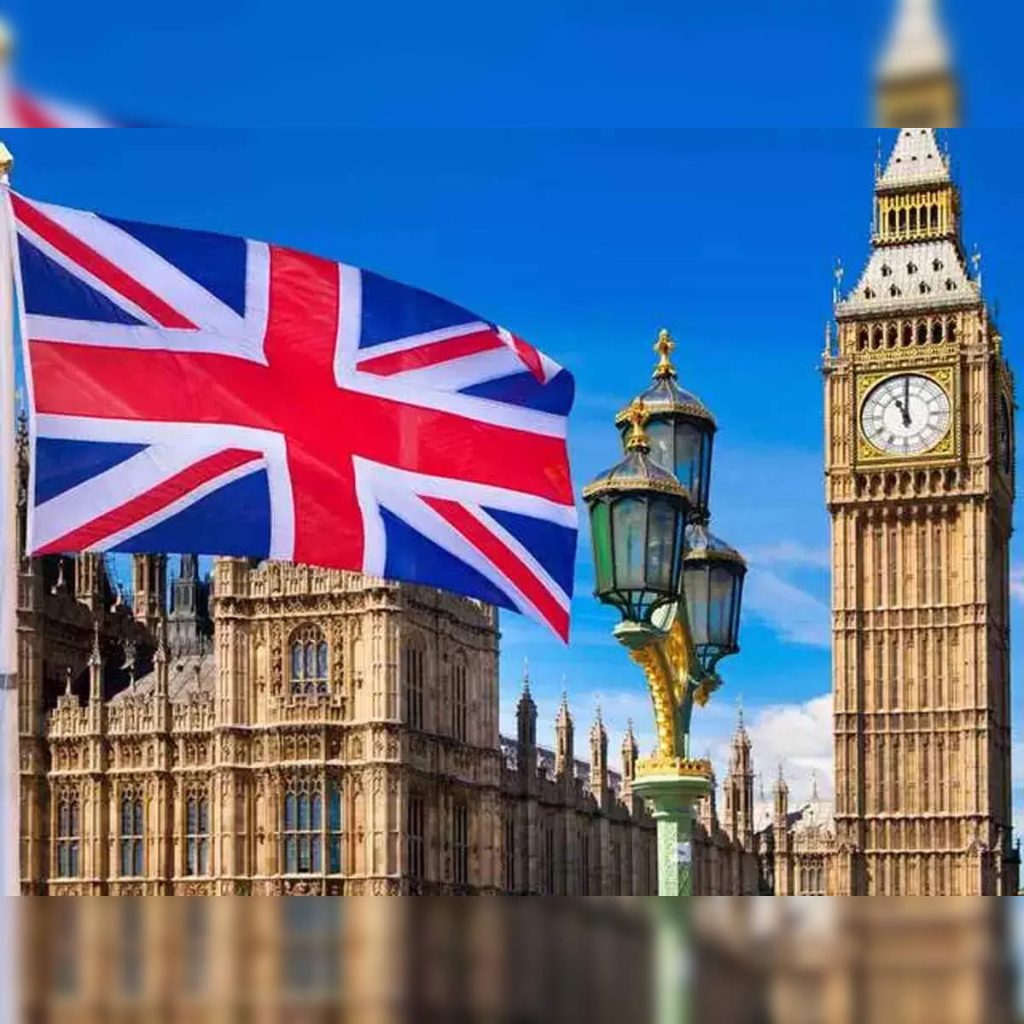Sunday, March 23, 2025

As of March 22, 2025, Canadian authorities have renewed and updated their travel advisory for the United Kingdom, signalling the need for all visitors to exercise a high degree of caution. While no travel ban has been issued, the advisory stems from ongoing safety concerns, heightened terrorism threats, and evolving regional dynamics, particularly in and around London and Northern Ireland. This move is expected to ripple through both the travel and tourism sectors, influencing traveller decisions, insurance policies, and route planning.
Weather Extremes and Natural Hazards May Alter Travel Itineraries
Climate change remains a growing concern in the UK, with unpredictable weather increasingly affecting travel infrastructure. Heavy rains and strong winds can cause sudden flooding, landslides, and transportation disruptions, particularly in coastal and riverine areas. The Met Office continues to issue warnings, and travellers are urged to monitor regional forecasts.
In addition to flooding, Scotland’s Cairngorms and other mountainous areas have seen avalanche risks during the winter months (December–April), prompting caution for hikers and outdoor adventurers. Rising heatwaves across the UK, particularly in the summer, are also raising alarms, given the lack of air conditioning in most homes and public buildings. These conditions, including risks of dehydration and heatstroke, have become more common and could impact tourist comfort and mobility.
Currency Declarations and Driving Regulations for International Visitors
Travellers carrying £10,000 or more in cash or its equivalent are required to declare it upon entering or exiting the UK. These declarations cover cash, bearer bonds, cheques, and certain valuables—especially relevant for high-value business travellers and luxury tourists.
Driving in the UK brings its own complexities. Tourists must adapt to left-hand traffic and understand congestion and environmental charges in urban areas like London. Vehicles entering Ultra Low Emission Zones (ULEZ) or the Congestion Charge Zone must comply with emissions standards or pay additional fees. Canadian travellers can drive with their license for up to 12 months but may need an international driving permit for car rentals.
Health, Vaccinations, and Medical Infrastructure: What Travellers Need to Know
Canada’s advisory notes that while healthcare in the UK is excellent, visitors must pay for medical services unless they qualify for emergency exceptions. The National Health Service (NHS) remains the primary provider, but travellers are strongly encouraged to purchase health insurance that covers medical evacuation and hospital stays.
Vaccination awareness is critical, particularly for diseases like measles, hepatitis B, rabies, tick-borne encephalitis, and influenza. Although yellow fever isn’t currently a concern in the UK, travellers should confirm vaccine needs at least six weeks before departure.
The advisory also underscores risks associated with animal contact (especially in rural areas), food and water safety, insect bites, and person-to-person infections such as COVID-19, flu, and mpox. Travellers are advised to follow stringent hygiene protocols and limit exposure in high-risk settings like concerts, airports, and public events.
Entry and Exit Requirements: A Layered Process for Canadian Tourists
The UK has implemented an Electronic Travel Authorisation (ETA) system, now mandatory for Canadians who do not hold a visa. The ETA must be secured prior to arrival and used with the same passport for travel. Exceptions exist for certain residents of Ireland and dual nationals with British or Irish passports.
While tourist visas are not required for visits up to six months, any activities beyond tourism—such as volunteer work, internships, or weddings—require appropriate visas. Officials are also likely to request proof of onward travel and sufficient financial resources. Travellers found with documents indicating intent to work may be denied entry. Moreover, those previously refused entry are advised to consult the British High Commission in Ottawa before reapplying.
These layered entry conditions are shaping the way tour operators and travel agents plan UK-bound packages. Strict documentation requirements mean that travellers—especially first-time visitors—will need more pre-departure support from agencies and visa consultants.
Transport and Strikes: Possible Disruptions in Connectivity
Transportation remains a cornerstone of the UK’s travel ecosystem. While public transport is robust, the advisory highlights the potential for strikes in key sectors like rail and aviation. Such actions can disrupt schedules, delay airport transfers, and cancel planned excursions.
The warning emphasizes the need for flexible travel plans and real-time updates. Airlines, ground handlers, and local DMCs may need to build contingency strategies into their itineraries to mitigate the impact of sudden walkouts or service suspensions.
Tourism Security: Target Zones and Public Alert Levels
Security remains a core concern, particularly due to the ongoing threat of terrorism. Although Canada’s advisory no longer mentions any Heathrow Airport closure, the general risk remains significant. Authorities have cited past attacks in the UK involving knives, vehicles, and explosives, many of which occurred in high-density tourist areas such as central London.
The UK’s national terrorism threat level stands at “substantial” (3 on a scale of 5), while Northern Ireland is at “severe” (4 out of 5). Destinations that frequently attract tourists—like Leicester Square, Piccadilly Circus, markets, public transport, and historic attractions—remain potential targets.
Security forces are visibly present in such areas, and travellers are advised to stay alert, especially during major public gatherings, sporting events, or political activities. These alerts not only influence traveller movement but also impact group tour itineraries and event planning across cities.
Petty and Violent Crime: Precautions for Urban Tourism
Canada’s advisory draws attention to persistent petty crimes in UK cities—particularly in tourist-heavy areas. Pickpocketing, bag-snatching, and mobile phone theft are common in London’s entertainment districts, public transport, and shopping centres. Tourists are especially vulnerable in hotel lobbies, cafes, and rest stops.
Additionally, violent crimes, including mugging and unlicensed taxi-related assaults, have been reported. Travellers are urged to use official transportation channels and exercise caution after dark.
Spiked drinks have emerged as a concern, with drugs reportedly added to food and beverages in nightlife venues. This has a direct impact on how tourism boards and hospitality brands promote nightlife safety and responsible tourism.
Cybercrime and Fraud: A Warning for Digital Tourists
As more travellers rely on online bookings and mobile apps, cybercrime has entered the spotlight. Tourists are warned against using unsecured public Wi-Fi and are advised to scrutinize card readers and avoid unfamiliar websites. Hotels, restaurants, and tourism providers may need to improve their cybersecurity communication to reassure guests.
Demonstrations and Marching Season in Northern Ireland
The months from April to August often witness heightened tensions in Northern Ireland, especially during the summer marching season. This period includes significant dates like July 12, often accompanied by parades, counter-protests, and occasional clashes. Visitors should expect road closures, delays, and heightened security in affected areas.
Travel stakeholders planning group tours to Belfast or Londonderry must coordinate closely with local authorities and anticipate last-minute changes.
Legal Considerations and Cultural Norms for Canadian Travellers
UK laws prohibit the carrying or purchasing of certain knives and impose heavy penalties for drug possession, including cannabis. Travellers are also cautioned about consuming alcohol in public spaces where it is restricted.
For dual citizens of Canada and the UK, consular services may be limited. In cases of detention or legal disputes, Canadian citizens may be subject to local laws and judicial processes. The UK’s agreement under the Hague Convention on International Child Abduction offers legal avenues for parents facing custody violations across borders.
How This Affects the Global Travel Industry
This updated advisory influences the decisions of not just Canadian travellers, but tour operators, OTAs, insurance providers, and event planners working across transatlantic markets. It reinforces the importance of flexible bookings, travel insurance, cybersecurity, and real-time crisis communication.
Tourism boards in the UK will need to amplify messaging around safety, health readiness, and support infrastructure. Attractions, hotels, and airlines may also need to bolster reassurance measures and clarify entry expectations for foreign guests.
The cautionary note on demonstrations, crime, and terrorism—though not a deterrent for most seasoned travellers—might lead to altered travel patterns, with visitors opting for less congested cities or countryside escapes. It may also encourage more structured group travel rather than independent trips, especially for first-time tourists.
Tags: Belfast tourism news, Canada Tourism News, cardiff, edinburgh, Edinburgh tourism news, England, England Tourism News, Europe, European tourism news, London Tourism News, NHS UK, northern ireland, Northern Ireland tourism news, Scotland tourism news, UK Tourism news, United Kingdom, wales, Wales tourism news









